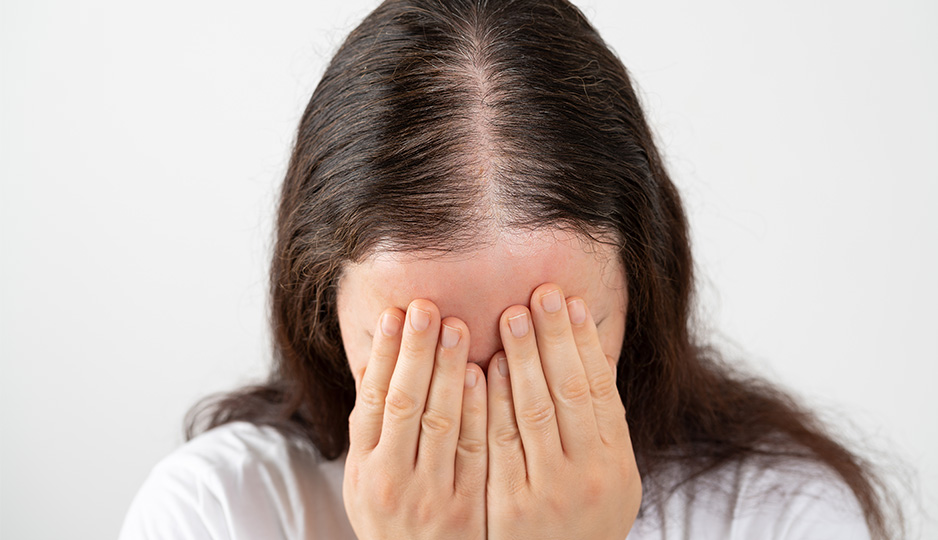While often seen as a male issue, thinning hair, and hair loss affects nearly two-thirds of all women. Hair loss is a problem for millions of women. Still, unlike men, who typically experience a receding hairline or bald spots, women often notice a gradual reduction in hair density and overall thinning, particularly along the crown of the scalp.
Hair is a critical element of most women's style and personality. The time to seek help is when you first notice a widening part, the sudden appearance of a bald spot on the scalp, or a clump of hair in your brush or the shower drain. Let's look at some of the reasons why women shouldn't wait to do something about their hair loss.
Emotional and Psychological Impact
Dealing with thinning hair and hair loss is emotionally challenging for anyone, but it is especially difficult for women. Studies have found that women are more likely than men to experience psychological harm due to hair loss and that the effects are more severe.
Hair is a significant part of a woman's identity, and losing it can drastically alter her self-image, leading to feelings of unattractiveness, vulnerability, and even a loss of femininity. Women experiencing hair loss sometimes obsess over their appearance, which can cause stress, anxiety, and even depression.
Diminished self-esteem and emotional distress can cause many women to avoid public places and social interactions to avoid possible embarrassment. A lack of confidence due to hair loss can also affect professional performance and interactions by causing someone to participate in meetings less, be reluctant to seek promotions, or change jobs to a less visible role.
Hair loss is associated with a high prevalence of psychiatric disorders, including anxiety, depression, social phobia, and personality disorders. People with severe hair loss are more likely to experience psychological distress than those with mild hair loss, making early treatment imperative.
Underlying Medical Conditions
Hair loss in women can also be a sign of an underlying medical condition. Hair growth is highly sensitive to even the slightest change in your body and is often the first symptom of a medical issue. Some of the most common medical conditions related to hair loss include:
- Hormonal Changes: Women experience hormonal shifts throughout their lives, such as during puberty, pregnancy, and menopause. Hormonal imbalances can disrupt the hair growth cycle, leading to noticeable shedding.
- Thyroid Disorders: An underactive or overactive thyroid can lead to thinning and hair loss.
- Nutritional Deficiencies: Deficiencies in iron, vitamin D, and other nutrients can contribute to hair loss.
- Autoimmune Diseases: Conditions like alopecia areata, where the immune system attacks healthy hair follicles, can cause hair loss.
- Medications: Certain medications, including those used for cancer, arthritis, depression, heart problems, and high blood pressure, can lead to hair loss.
Treatments Are Available
When a woman experiences hair loss, the effects can be devastating, taking a heavy emotional and psychological toll. While hair loss has many causes, the sooner you take action, the easier it will be to find an effective solution. Ignoring the early signs of hair loss can worsen your condition and complicate treatment, while early intervention can help you restore volume and maintain your confidence.
If you're noticing thinning hair or more shedding than usual, don't wait to get help. The team of experts at LH Hair can help you determine what's causing your hair loss and help develop a custom treatment plan to keep your scalp and hair healthy and improve hair growth. Contact us today to schedule your FREE initial consultation to learn more about why women shouldn't wait to do something about their hair loss.



